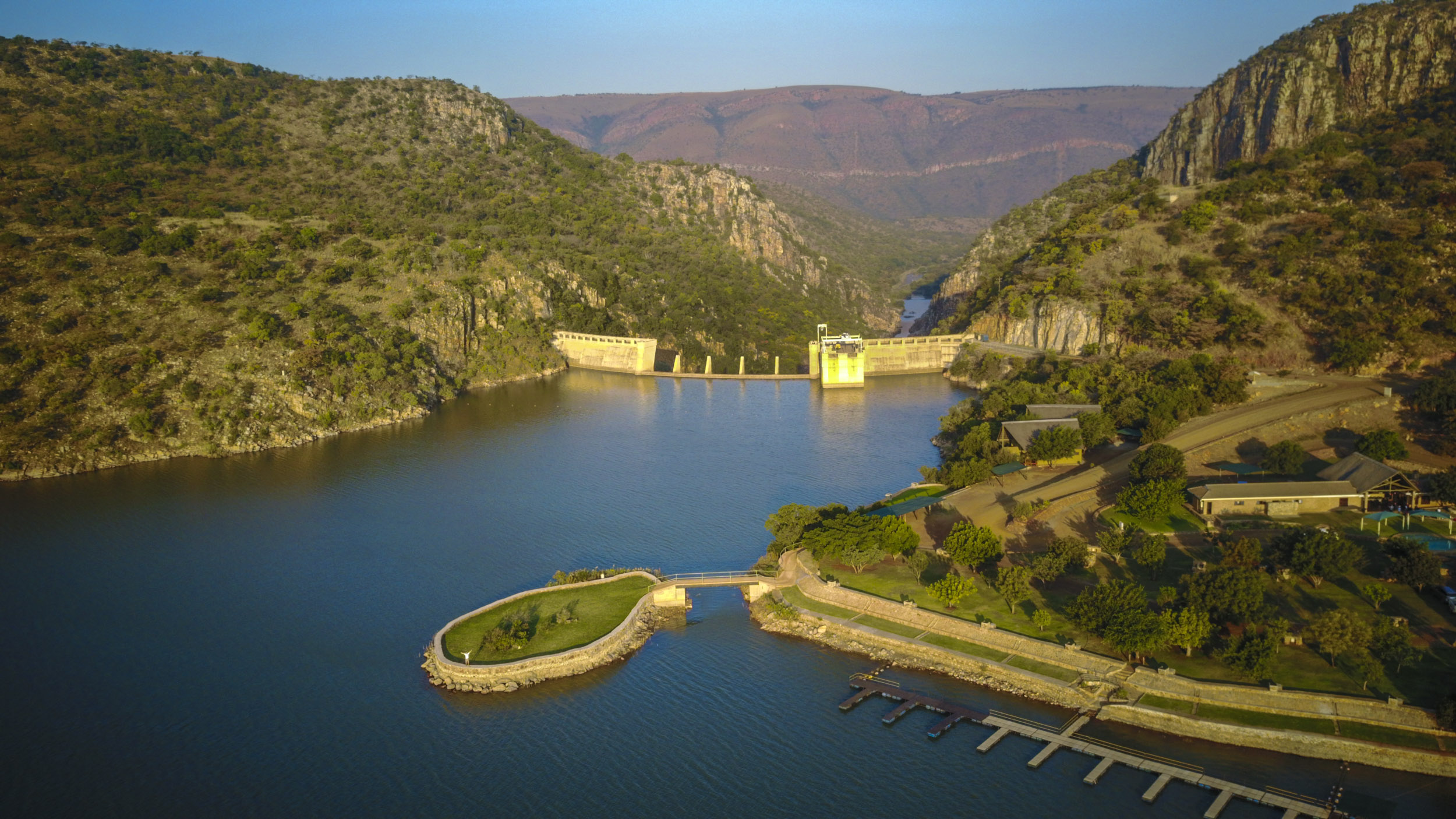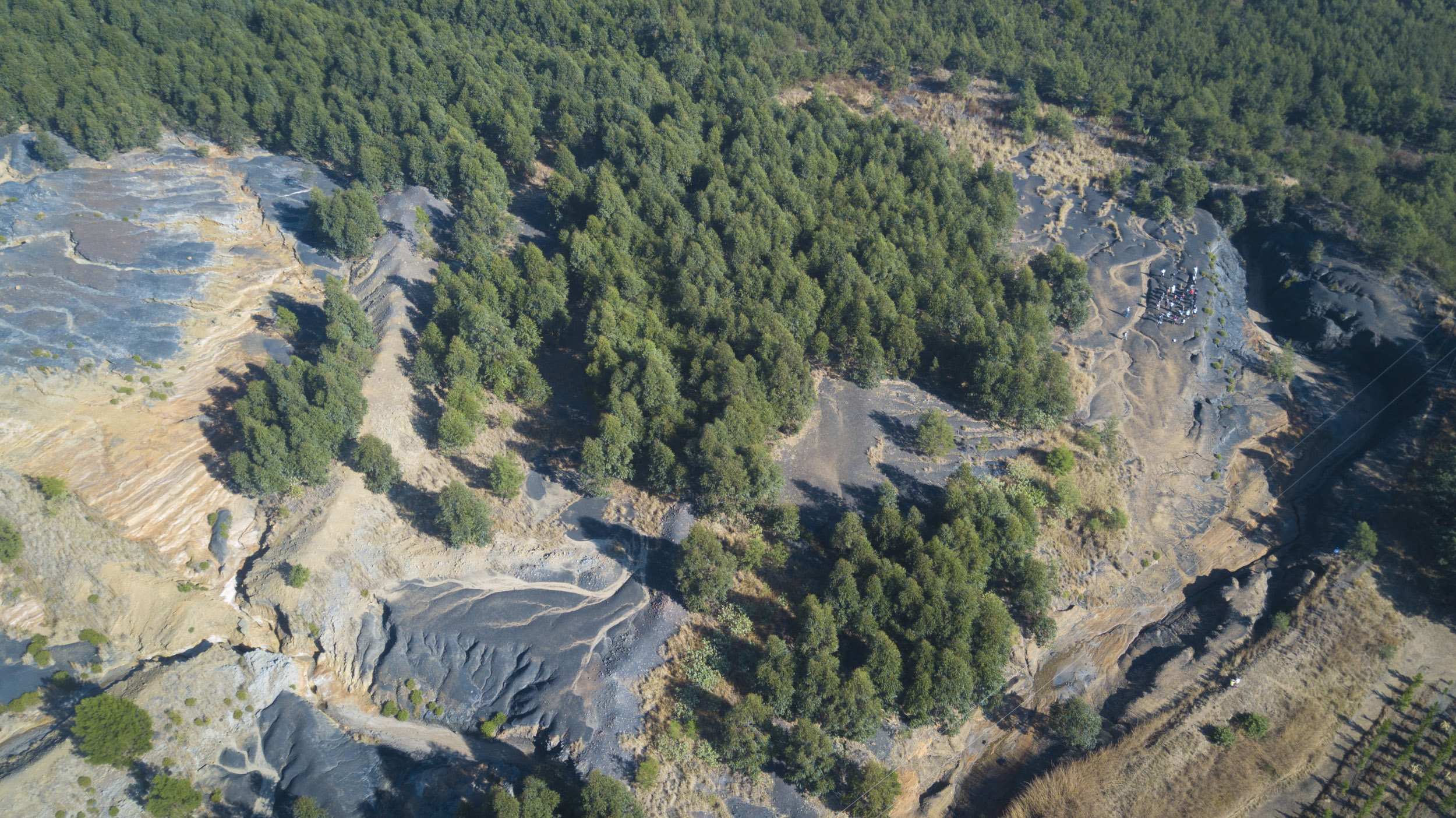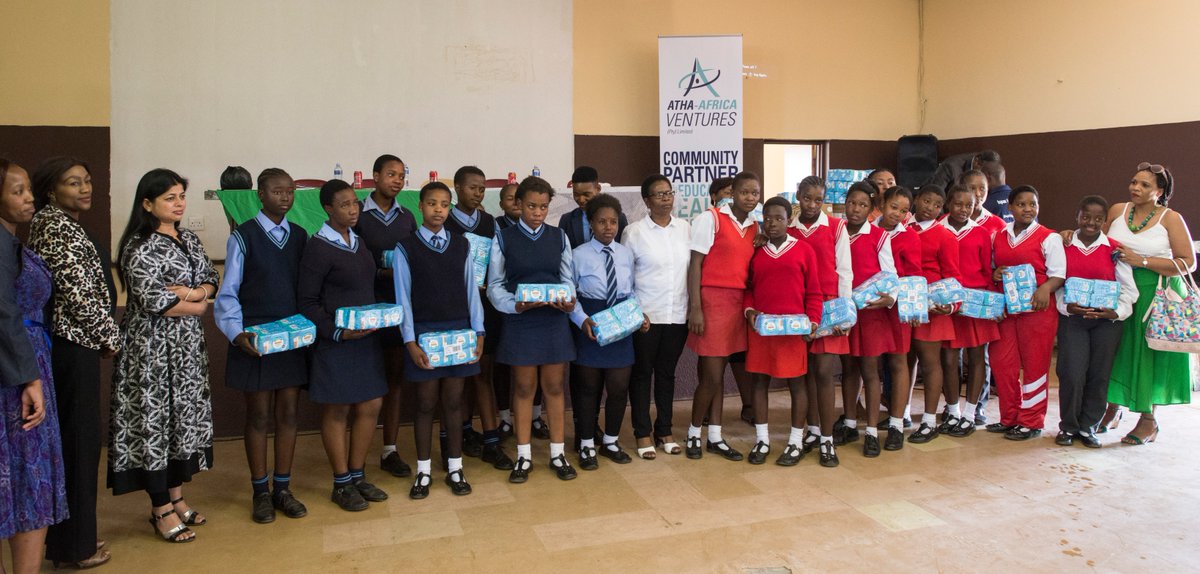
18 May Is Mabola open for mining?
Indian company Atha-Africa Ventures is going ahead with an application to change land use at the Mabola protected area to open it to mining. Julia Thomas investigates

Mabola is the feeder of four major river systems, and is one of 21 listed nationally strategic water source areas in South Africa. Photo: Johnny Miller/AfricanDRONE
Opponents of coal mining in the Mabola protected area in Mpumalanga have until May 30 to comment on an application to change the land use from agriculture and conservation to “mining and ancillary purposes”.
Indian mining company Atha-Africa Ventures filed a land use change application for the proposed Yzermyn underground coal mine at Mabola on April 5 2018, after the municipality asked the company to re-submit its development application last year.
Atha-Africa has met resistance in regards to environmental standards since it began securing rights in 2013 to mine at Mabola, creating a precedent-setting case in terms of the ability of national protected area status to safeguard ecologically important regions.
Mabola is one of five areas in Mpumalanga afforded protected status, intended to preserve areas of strategic ecological, historical, or cultural value. The feeder of four major river systems, the Mabola Protected Environment is one of 21 listed nationally strategic water source areas in South Africa and is home to a freshwater ecosystem serving agriculture and farming interests across the province.
Opponents say mining in Mabola could have devastating long-term impacts, including drying up the wetlands and creating acid mine drainage.
Atha-Africa published an advert in local newspaper The Volksrust Recorder on April 20 2018 communicating the submission of the new land use change application and that any objections to the proposal must be submitted to the municipality by May 30.
The advert states that the company has applied to change the land use on Portion 1 of the farm Yzermyn, which is subject to a mining right issued by the Department of Mineral Resources, to “mining and ancillary purposes”. Parts of the property not affected by the mining right will be used for “ongoing agricultural and ancillary purposes”.
Praveer Tripathi, Atha-Africa’s senior vice-president, told Oxpeckers the only outstanding permission needed for the Yzermyn mine application to go ahead is the land use re-zoning approval.
“The application has been made and is under a public participation [process] for 30 days until May 30 2018,” Tripathi wrote in an email to Oxpeckers. “Once we have all comments, we would draft our response on objections, if any.”
Spatial planning
The Gert Sibande district municipal planning tribunal refused Atha-Africa’s zoning application, made in 2017 under the Dr Pixley KaSeme Isaka local spatial planning and land use management bylaw 2016, and responded in a letter on April 20 2017 requesting that the company apply under a different scheme under the regulations of the Spatial Planning and Land Use Management Act of 2013.
The relevant regulation under the Act allows for applications where town planning and land use schemes are not considered. Finalisation of this new scheme was under way, and the Department of Rural Development and Land Reform was in the midst of working with Gert Sibande district municipality to implement it at the time of Atha-Africa’s original application.
A letter from Dr Pixley Ka Isaka municipal manager dated April 9 2018 acknowledged receipt of the new application for land use change of portion 1 of Yzermyn 96 HT Farm on April 5 and granted permission for Atha-Africa to begin the public participation period.
The Centre for Environmental Rights (CER), representing a coalition of eight civil organisations challenging mining development in the protected area, received verbal confirmation in October 2017 that the application had been refused. The group was told that Atha-Africa was asked to re-submit their application to have the land on which the proposed coal mine is situated re-zoned from agriculture and conservation to mining.
On behalf of its clients, CER wrote to Atha-Africa and the municipality asking for copies of the resolution to resubmit but did not receive responses.
“We asked the municipality and Atha to give us copies of the land use change applications they’ve submitted and those requests fell on deaf ears,” said Catherine Horsfield, CER’s mining programme head. “Atha is now bringing a fresh application for land use change. The coalition has instructed us to obtain a copy of the application as its members intend to object to the change.”
The Spatial Planning and Land Use Management Act requires relevant municipalities to communicate all applications for land use change in local newspapers and to make documents available for public viewing in the district office.
Atha-Africa placed two adverts in The Volksrust Recorder, on January 6 2017 and February 3 2017, relating to its land application, but according to Horsfield these notices were defective. Among other things, she said, they falsely indicated the application documents were available for public viewing – no parts of the application were made available in January, February, or in the middle of 2017, when it was being heard by the municipal planning tribunal, she said.

The Centre for Environmental Rights is concerned that not enough money has been set aside for the rehabilitation of Mabola, if mining goes ahead. Photo: Johnny Miller/AfricanDRONE
Access to information
Since Mabola was declared one of five protected areas in the Mpumalanga grasslands by the the then MEC for economic development, environment and tourism Pinky Phosa in 2014, to promote a long-standing government objective to protect the hydrologically important and environmentally sensitive area, there has been much debate – and court proceedings – around the ability of the legal status of the area to provide it adequate protection.
Oxpeckers requested a copy of the latest land use change application under the Promotion of Access to Information Act (PAIA) on January 9 2018, which provincial authorities were required to present within 30 days. On February 9 2018, the PAIA request was transferred from Gert Sibande district municipality to Dr Pixley Ka Isaka Seme local municipality.
Oxpeckers has since reached out to the municipal authorities regarding a written extension of the PAIA request and for details of the latest land use change application. A copy of the 2017 land use change application was received, but not the latest version.
Water affairs
Mabola Protected Environment is part of an 8,772ha zone of protected wetlands, pans and endangered grassland ecosystem that together forms the Nkangala strategic water source area. Atha-Africa’s first environmental consultants, Natural Scientific Services, warned against the project, red flagging the mine for having potential serious impacts on water supply to ground water resources and contamination.
Environmental impact assessments commissioned by CER indicated that Atha-Africa’s assessment of water management after the mine’s lifespan was lacking in that it did not include financial provisions for a water-treatment plant.
In 2016, on behalf of the civil coalition, CER commissioned independent environmental consultants, including a team of hydrologists and wetland experts, to review the mine’s water use licence application and to appeal against the granting of a licence before the Water Tribunal. The tribunal is a statutory body that hears appeals against decisions by responsible authorities about matters covered by the National Water Act, including the issuing of water use licences.
“There was a significant gap in the fact that Atha-Africa didn’t make provision for water treatment, which is a glaring flaw in our view,” Horsfield said.
Atha-Africa provisioned only for limited water management but has put up no financial provision for post-mining water treatment, she said. The finding of Atha’s own consultants was that the mine would have a lifespan of 15 years and that mine water would decant after 45 years, meaning the release of polluted water into wetlands and streams. According to the coalition’s experts, Atha ought to have made financial provision for a water-treatment plant which would likely need to operate for at least 20 years.
“Given the location of the mine and the significance of that location for freshwater management in South Africa, the failure to account for these costs is particularly problematic and enormously concerning to all South African taxpayers. Taxpayers will ultimately carry the costs of rehabilitation if sufficient financial provision has not been made,” said Horsfield.
Ministerial green light
Under the Protected Areas Act, a mining project may proceed if it has obtained written permission from the national ministers of environment and of mineral resources. Atha-Africa obtained authorisation from the ministry of minerals in September 2014 and then from the environmental affairs minister in August 2016. The final required sign-off from the ministry of mineral resources was given in November 2016. (See “Ministers sign secret deal to mine strategic water zone”)
After the civil coalition appealed Atha-Africa’s water use licence, it was suspended due to the potentially harmful effects of proceeding with mining activities at Mabola. The suspension was uplifted, at Atha-Africa’s request, by the minister of water and sanitation in March 2017 – despite the licence being under appeal before the Water Tribunal.
CER requested an expedited hearing of the appeal, which was set to take place on March 26 2018. The scientific and legal counsel working with the civil coalition had prior commitments and requested a postponement of the hearing until May, which Atha-Africa opposed.
Tripathi stated that because Atha-Africa had obtained an unsuspended water use licence, it was not reasonable for the matter to be placed on an urgent roll, as CER had sought to do. “The appeal is devoid of any substance and is just an example of vexatious litigation by them [CER] to further their anti-developmental and anti-transformation agenda,” he said.
Though the Water Tribunal refused the request for a May hearing, it indicated that Atha-Africa did not provide evidence as to how the authorities would be prejudiced if the matter was postponed. The appeal was then removed from the Water Tribunal’s urgent roster, and it was indicated that both groups must approach the tribunal for new hearing dates.
Horsfield said all parties – CER and its clients, Atha-Africa, and the Department of Water and Sanitation – have indicated dates in July on which they are available for the hearing of the water use licence appeal and are currently awaiting confirmation from the tribunal as to its availability.
“Atha-Africa is ready and prepared whenever it is called up for hearing,” Tripathi wrote in an email to Oxpeckers.

On March 15 Atha -Africa Ventures launched the social campaign #LadiesWeCare to provide free sanitary pads to underprivileged high school girls, as part of its corporate responsibility initiative. Photo: Atha-Africa Ventures
On-the-ground presence
While these legal processes have halted any significant progress on the Yzermyn mine, Atha-Africa is building an on-the-ground presence among communities living in municipalities near to the proposed mine.
Tripathi said the company “has invested R400-million to date and committed to invest an additional R600-million” for social and labour initiatives.
In March Atha-Africa launched “major community projects in education, health and agriculture”, using hashtags #LadiesWeCare and #BareFootWeCare, as part of its social and labour commitments to the Department of Mineral Resources to build a positive presence among communities in Mpumalanga.
Both campaigns promote access to education for underprivileged children, with an initial distribution of 2,000 packs of free sanitary pads to high school-aged girls who “miss school at least one week every month”, and 200 pairs of shoes to primary school children attending “school without proper shoes and in some instances walk long distances barefoot”.
“Atha-Africa Ventures views the community as its partner in bringing development to one the most impoverished and economically depressed regions of Mpumalanga and once again reiterates its commitments to bring sustainable development to the region,” Tripathi wrote in an email to Oxpeckers.
He emphasised that Atha-Africa views communities in the region, “which have always supported this development since 2012”, as its partner in development, citing health, education and agricultural programmes as primary focus areas.
“Atha-Africa Ventures understands the frustration felt by the local community due to the delays [the company] had in obtaining various regulatory approvals over a period of five years,” Tripathi wrote.
Long-term impacts
According to Atha-Africa, the Yzermyn mine will be built on four of the 21 farms in the Mabola Protected Environment. Tripathi said there will be no surface infrastructure on the impacted areas and that the possibility of development and “the measures that have been put in place to ensure that these mining activities will take place in an environmentally sustainable manner” have been ignored by CER and its clients.
The CER counters that Atha’s estimation of the afterlife of the mine and job creation have been miscalculated. While Atha-Africa has estimated that R305,000 is necessary for water management, CER director Melissa Fourie says the coalition’s research indicates that water treatment will be one of the most expensive rehabilitation costs associated with the proposed coal mine and that Atha has not properly allotted funds for rehabilitation. Approximately R1.2-million will be needed for the water treatment plant alone, she said.
“If Atha has not assessed the full environmental costs associated with its proposed mine, then it has not assessed the financial viability of the project,” Fourie said. “If the financial viability is unknown, then the project cannot go ahead lawfully.”
The civil coalition is worried that the mine will not provide local jobs, and that the environmental degradation and water extraction and pollution will compromise existing and future grazing, commercial livestock, agriculture, subsistence farming and livestock.
“Although the coalition strongly supports development and job creation in this area, expert advice has shown repeatedly that an underground coal mine is not only the wrong development option for this area, but poses significant environmental risks that people in and downstream of this area will be left to deal with decades from now,” Fourie said.
Julia Thomas is a freelance American journalist who received the Thomas J Watson Fellowship 2017-18 to explore the intersections of storytelling, citizenship and journalism across the globe
Find the Mabola licences and related documents on #MineAlert here
